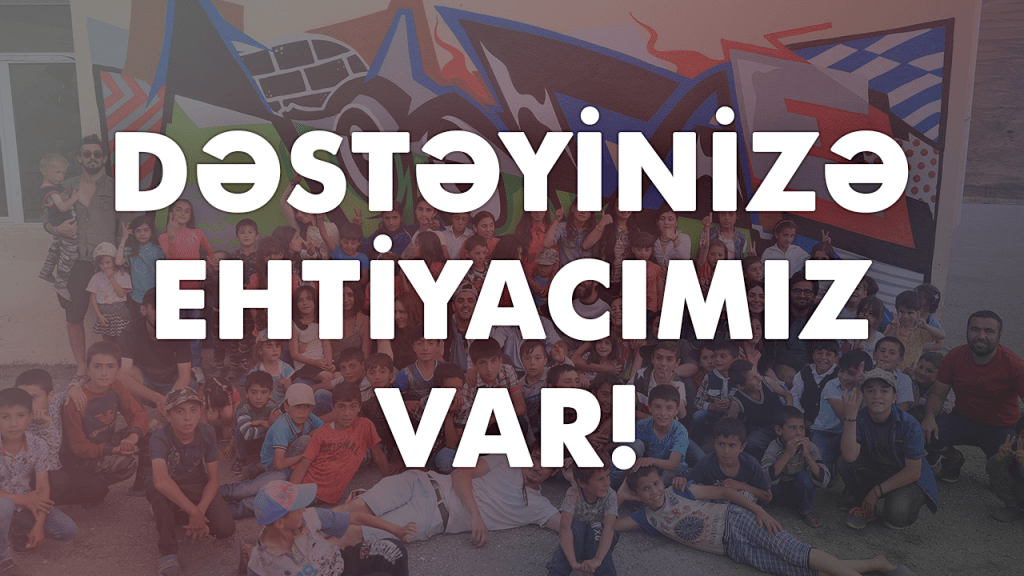Approach of Contemporary Azerbaijani Artists to Gender Theme

Approach of contemporary Azerbaijani artists to gender theme
Participants of the lecture
– Moderator: Saadat Abullazada
– Conceptual artists: Sitara İbrahimova, Vusal Rahim, Elturan Mammadov, Agil Abdullayev
– Duration of the lecture – 95 minutes
– Organizer – VarYox
Gender problem and gender equality are main topics of discussion in the world. This is primarily the result of gender inequality in the economic and social spheres, as well as a deterioration in the quality of human resources. Thus, the complication of the problem interferes with the socio-economic progress, reduces the fruitfulness of the current system in the development of human capital and, finally, leads to deepening of social injustice in society.
The Republic of Azerbaijan carries out a number of activities in order to solve the gender problem. But indicators that we are facing in recent years, both in the local media and official statistics, cause a feeling of regret. It becomes obvious that sometimes the deviation of girls from education in many districts and villages of the country is almost massive. According to official statistics, in 2016, 15–17-year-old mothers gave birth to 2,809 children. Such indicators in the 21st century, do not bode well for either the future generation or the Azerbaijani society. A healthy and strong society can only be achieved by increasing women rights and family values. These values are also reflected in the direction of the social policy of our state. It should be noted that in solving the gender problem, everyone should contribute, along with the state.
All the above mentioned artists are famous representatives of contemporary art of Azerbaijan. The main factor uniting their creativity is the wide coverage of gender problems in their works. We believe that representatives of art should also highlight gender issues in their works and work towards their solution.
Lecturers:
Sitara Ibrahimova
The project “The Path of a Woman”, which was created by Ibrahimova in 2018, reflects a woman who exists and considers herself in the mirror, surrounded by political and socio-economic problems that have occurred in Azerbaijan over the past 20 years. This woman lives 100 years after establishment of Azerbaijan as a country for the first time in the Turkic and Muslim world which granted women right to elect and be elected. As part of her work, the artist himself merges with women in various regions of the country, confined among numerous problems relating to gender, education, early marriage, domestic violence, depression, unequal assessment of work, and social and economic problems and fighting for survival among the four walls. Two frames capture the same place, interior and image. But in the same clothes you can see different bodies and alternatives of life. Sitara’s project “The Path of a Woman” continues and new frames and destinies will be reflected within its framework.
Sitara İbrahimova was born in 1984 in Baku. In 2004, she received a bachelor’s degree in the Faculty of Social Sciences and Psychology of Baku State University, in 2011 – a bachelor’s degree in photography from the Prague Academy of Arts, and in 2018 – a master’s degree in the Faculty of Clinical Psychology of Baku State University. In 2015, she founded the “Cultural Intent” charity platform, and in 2018, the VarYox media platform.
Since 2002 she has been participating in local and international art exhibitions. In 2013, she represented Azerbaijan at the Venice Biennale, and in 2015 – Iran.
Vusal Rahim
His conceptual work “Nurjan” combines many areas of art (performance, video art, photo art, installation). “Nurjan” covers the problem of early marriages that exists and is growing in Azerbaijan. The artist, inspired by the tragedy that occurred in 2016, expressed his position on early marriages and education evasion.
The work, demonstrated in 2018, consists of 3 stages. The first stage consisted of preparation for the exhibition. The second stage was associated with the conduct of the event itself, where the exhibition salon – the walls, decorations, requisition, everything was shrouded in black. In one of the exhibition rooms, a 14-year-old bride, dressed in a black wedding dress, was waiting for the groom, who is much older than her. People walked around the exhibition rooms, trying to understand what was happening. After a short time, representatives of the groom and musicians entered the hall in accordance with traditional foundations. According to tradition, they took the girl from the father’s house. It was a wedding shrouded in black. It was a look at early marriages and ignorance, to which our society has come, through the eyes of a minor bride. The third stage of the project continued on the next day of the exhibition by distributing an article to all media under the heading “A black wedding took place in Baku”. Having first accepted what happened as the truth, people then realized that this was a peculiar approach of the artist to the problem of early marriage. “Nurjan” was a project that aroused great interest and raised excitement. V.Rahim continues his projects on this topic in various formats.
Vusal Rahim was born in 1987 in the city of Ganja. From 2007 to 2011, he studied theater designing at the faculty of theatrical and decorative design of the Azerbaijan State Academy of Arts. Since 2011, he worked as a director in the famous theaters of Azerbaijan, and also successfully continued his career in the field of contemporary art of the country. Vusal is a regular participant in numerous exhibitions held both in Azerbaijan and abroad.
Elturan Mammadov
Elturan Mammadov, whose name has often been heard in the past 10 years as part of the platform of contemporary art in Azerbaijan, wants to take part in an exhibition planned in London, along with his two newest projects. His first project called “The House of My Childhood” is an installation that covers the problem of early marriage. The project reflects the tragedy of girls who are forced to marry through the game (hopstop), which is played by children. The second project of Elturan is connected with the art of interactive installation. Both projects are related to the problems of gender inequality and early marriages, which exist, and, unfortunately, are becoming more common in Azerbaijan.
Elturan Mammadov was born in 1990 in the city of Oguz (then Vartashen). He received his degree in Social Discourse from the Institute for Studies in Global Prosperity, and also graduated from the Mohsen Makhmalbaf Film School directing department. Since 2012, he is participating in local and international exhibitions of contemporary art.
Faig Ahmed – A hand-woven carpet entitled Virgin (2016), stands in conversation with The Biggest. The titles alone are suggestive enough to understand the juxtaposition within the first room of the exhibition. Virgin is a hand-woven carpet with a traditional pattern that gradually transforms into a thick red mass. The work continues on a series of signature textile works by Ahmed and reveals unspoken local narratives on male-female gender relations hidden inside the crafts and artisanal practices. More specifically the work draws from the early practice of unmarried girls producing one exquisite textile as part of the treasure she brings into the marriage. In other words suggesting the transition from a girl to a women.
Faig Ahmed graduated from the Sculpture Faculty of the Azerbaijan State Academy of Fine Art in Baku in 2004. Since 2003 he has been working with various media, including painting, video and installation. He is currently studying the artistic qualities of traditional Azerbaijani rugs – he disassembles their conventional structure, rearranges the resulting components and then combines these fragments with contemporary sculptural forms.
He thinks that our opinions and decisions result from the influences of our childhood. If we could know all the details of someone’s life we could easily predict their reactions and choices. Tradition is the main factor that creates society as a self-regulated system. Changes in unwritten rules happen under the influence of global modern culture. The carpet is a symbol of the invincible traditions of the East, a visualization of an indestructible icon.
But in his art he sees culture differently. It is more about the expectation of a reaction because it is precisely this change in points-of-view that changes the world. Slight alterations in the form of a carpet dramatically change its structure and maybe make it more suitable for modern life. Eastern culture is visually very rich. Ahmed covers it all in minimalistic forms, destroying the stereotypes of the tradition and redrawing new modern boundaries. People can widen borders and change them but no one has ever dared to break the local spirit.
Moderator: Saadat Abdullazada
Saadat Abdullazadeh has been working in local and non-governmental organizations such as AMM, UNICEF, UNFPA since 2012. She has researched and conducted trainings in different regions of the country in Baku, Mingachevir, Shamakhi, Tartar, Agdam, Aghdash, Aghjabadi, Beylagan and others. Among them are “Theater for Gender Problems in Rural Areas”, “Writing and Management of the Project”, “Voice of the Youth” campaign and others.
- Moderator – 15 minutes
– Greeting
– Short information about the topic
– Attitude of artists of contemporary art to the gender issue
– Presentation of the problem
– Presentation of artists
- Sitara Ibrahimova – 15 minutes
– Short information about herself
– Speech about project
– Presentation of the project
– Project Impact
– What would she like to change thanks to her project
- Vusal Rahim – 15 minutes
– Short information about himself
– Speech about project
– Presentation of the project
– Project Impact
– What would he like to change thanks to his project
5 minute pause
- Elturan Mammadov – 15 minutes
– Short information about himself
– Speech about project
– Presentation of the project
– Project Impact
– What would he like to change thanks to his project
- Faig Ahmed – 15 minutes
– Short information about himself
– Speech about project
– Presentation of the project
– Project Impact
– What would he like to change thanks to his project
- Moderator – 15 minutes
– General overview of the topic
– Exchange of opinions with the audience: Question-Answer
– Farewell and thanks.





